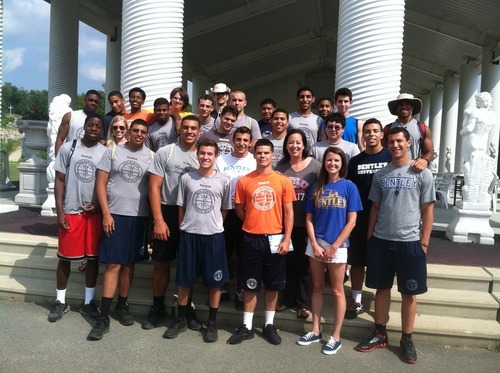
We planned an activity for the junior and senior campers to provide some insight/guidance about the admission process and really put the students in the driver’s seat! They were split into different groups (admissions committee, applicants, and interviewers) and were able to get an inside look at the inner workings of an admissions office. After the “applicants” presented their case, and the “interviewers” were able to ask their questions, the “admissions committee” made their final admission decision on the student profiles that were presented. It got me thinking…
Perhaps other students could benefit from the experience, so here are some of the main takeaways from the activity as you navigate your own college process:
1. The college admissions process is so much more than your GPA and test scores. Putting the time and effort into describing your compelling personal side can most certainly make a difference to an admissions committee. Choosing the right teachers/counselors to write your letters of recommendation (those who can really speak to your personality and strengths as a student), following your passions and getting involved in extracurricular activities, taking on leadership roles, speaking from the heart, and putting thought into how your essay will tell your story are all important factors to becoming that well-rounded student that colleges will be vying for.
2. The admissions committee won’t be able to ask you questions during the review of your application. Unlike the activity we planned for this exercise, you won’t get the opportunity to stand in front of the admissions committee and plead your case. It is important to provide as much detail and information as you can in your application, so that the committee can make an informed decision. Take advantage of the opportunities presented to you to make contact with students or admission counselors, and keep in touch. If there is something that you feel needs more attention or clarification in your educational history that can’t be described in your application, find out if the school offers interviews. If not, send an e-mail, pick up the phone, or discuss with your teachers/counselors to make sure it is referenced in their letters of recommendation.
3. Be open and honest. If you do have the opportunity to interview or meet with someone in the admissions office, be yourself! Of course you want to make a good impression, but don’t answer questions with what you think wewant to hear (we can tell!) Instead, provide context and insight into who you are as a person and a student. Did your grades slip sophomore year? We would much rather hear about why and how you made changes to improve, instead of avoiding the topic and leaving us wondering as we read your transcript.
